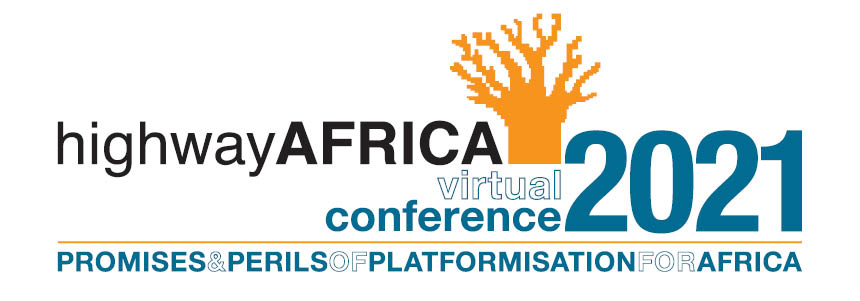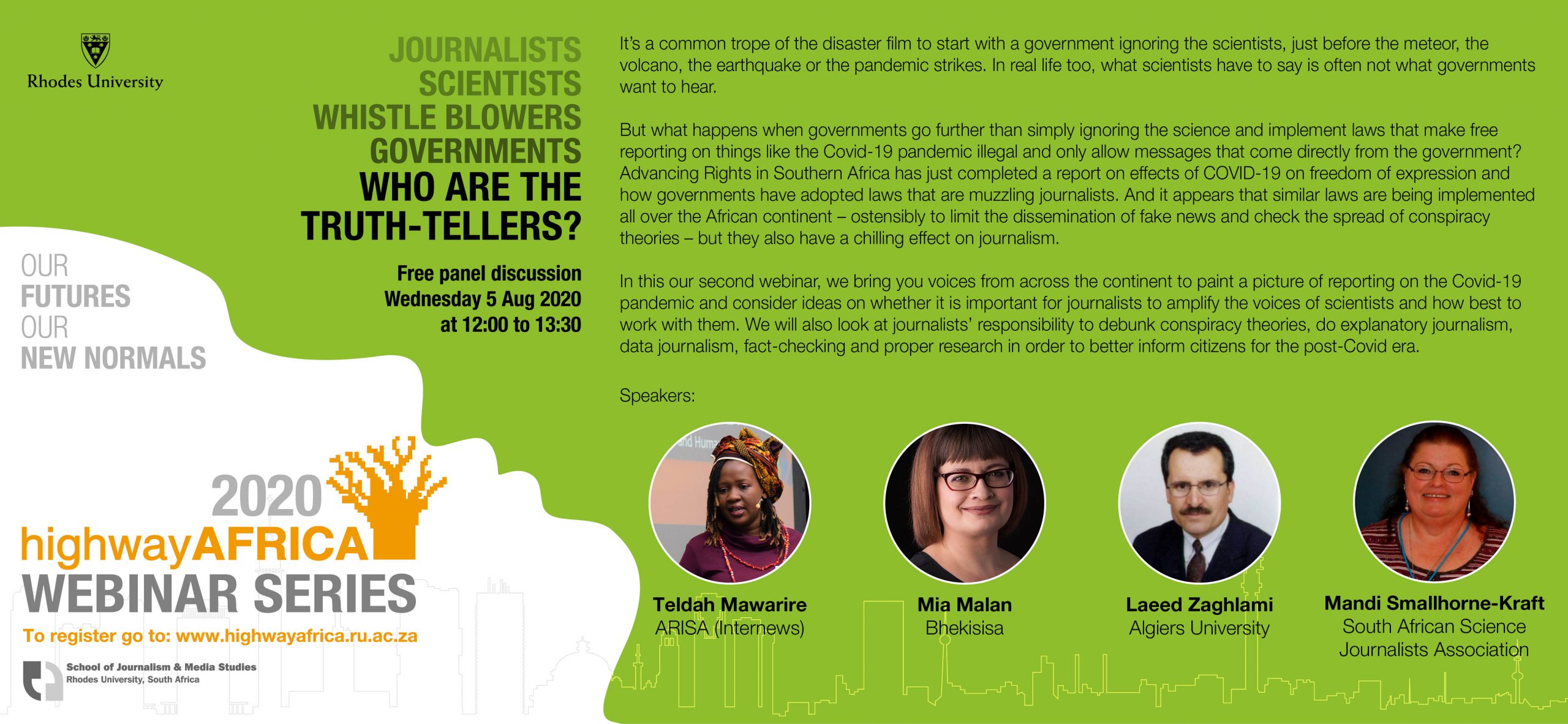
It’s a common trope of the disaster film to start with a government ignoring the scientists, just before the meteor, the volcano, the earthquake or the pandemic strikes. What the scientists have to say is often not what the government wants to hear. This is why it is often so important for journalists to amplify the voices of scientists. What happens when governments implement new laws that make any reporting on the Covid-19 virus except messages that come directly from government itself illegal?
Internews has just released a report that shows how journalists have been muzzled all over Southern Africa, and how these new laws have particularly affected any investigative journalism into conditions at hospitals and infection numbers.
It appears that similar laws are being implemented all over the African continent. Restrictions around the spreading of fake news on the pandemic may be important to limit conspiracy theories, but they also have a chilling effect on journalism. And what responsibility do journalists have to work with scientists to understand the science to actively debunk conspiracy theories?
In this, our second ‘free’ webinar brought to you by Highway Africa (HA) and Rhodes University’s School of Journalism and Media Studies in the past two months, we bring you voices from across North, West and Southern Africa.
These are journalists and researchers who will paint a picture of what it is like reporting on the pandemic, but also considering ideas (what sort of ideas? Developmental? I think you need to be more specific here) for the post-Covid era, and how journalists should relate to scientists on the continent in the longer term.
HA, set up by Rhodes University 24 years ago, is Africa’s biggest and oldest conference series for journalists and media workers from across the continent. Over the years, it has brought together thousands of media people to chart the future of Africa’s media and journalism and has been a key networking platform for them.
These webinar series are a prelude to the HA annual conference that is scheduled to be held next year. The conference could not be staged this year because of Covid-19 travel restrictions by all governments across the world.
Webinar speakers
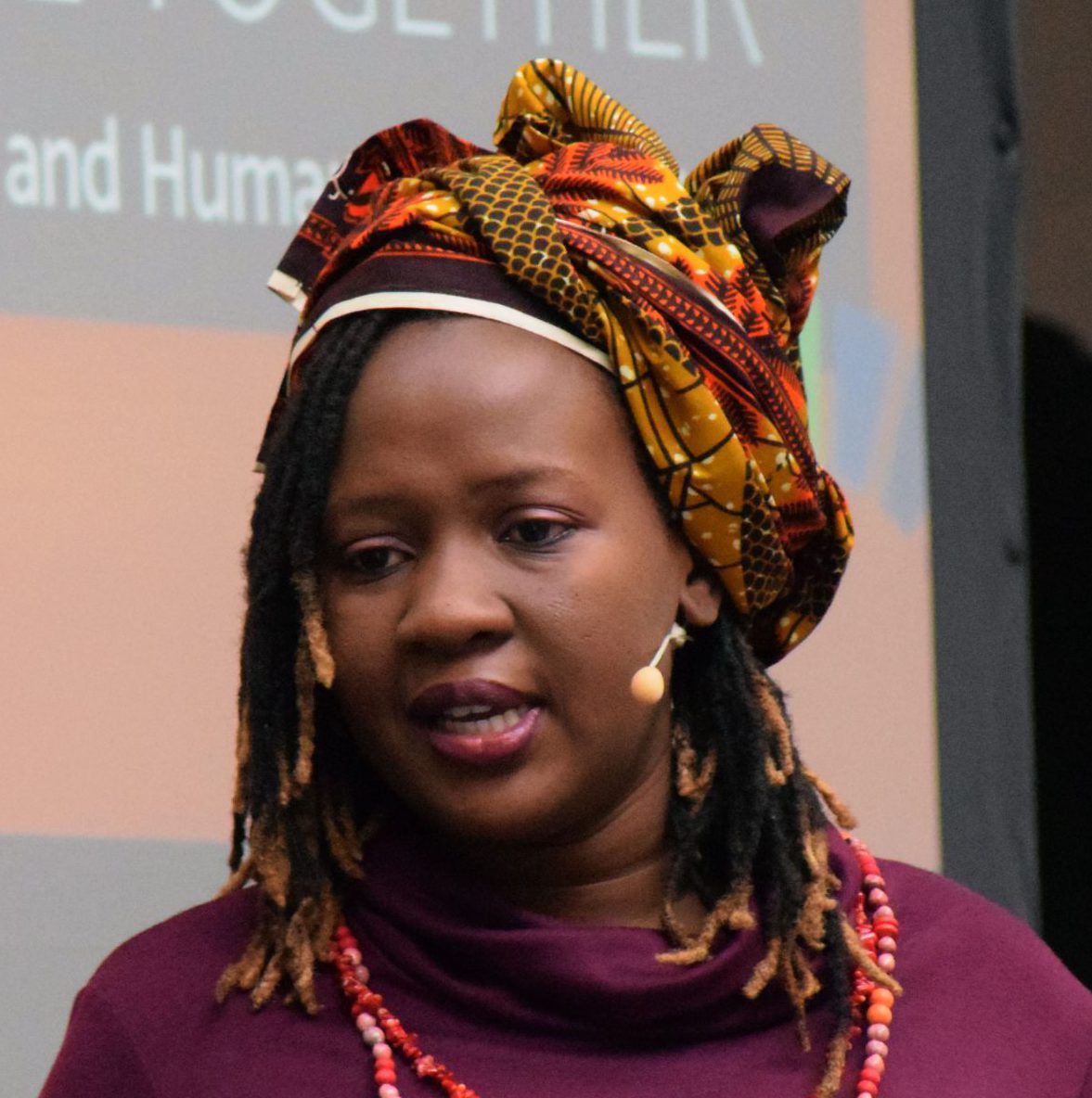
Teldah Mawarire
PROJECT DIRECTOR, INTERNEWS
Teldah Mawarire is the projects director at Internews which is part of the Advancing Rights in Southern Africa consortium. The consortium includes Freedom House, Internews, Pact and American Bar Association. They have just completed a report on the effects of COVID-19 on freedom of expression and on the reporting on Covid-19 in Southern Africa.
Mawarire is a former editor and journalist and has done research into freedom of expression, access to information and migration. A feminist and human rights defender. Through her work for the global civil society organisation Civicus, Mawarire has supported human rights defenders to access mechanisms and engage the African Union, the African Commission on Human and People’s Rights and at the United Nations Human Rights Council. A recent opinion piece on media ethics in a time of Covid-19 by Mawarire was published this month by the Ethical Journalism Network.
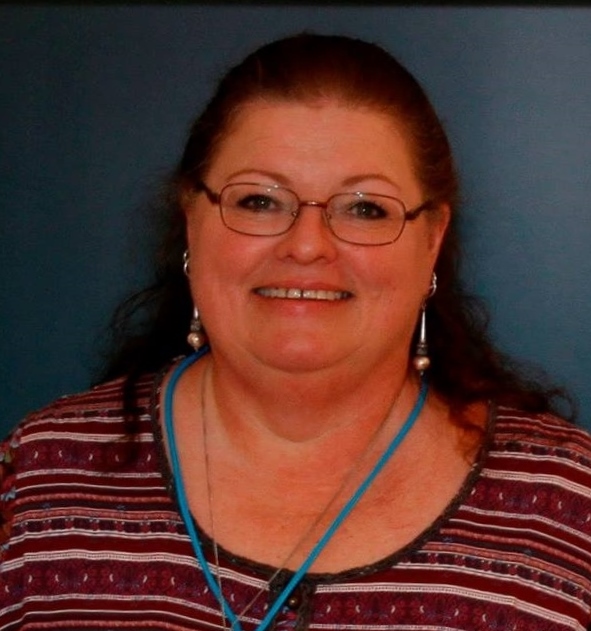
Mandi Smallhorne-Kraft
PRESIDENT, SOUTH AFRICAN SCIENCE JOURNALISTS ASSOCIATION
Mandi Smallhorne-Kraft is a freelance journalist and magazine editor. A health journalist since 1993, she has edited the official magazine of the South African Society of Physiotherapy for two decades. She has also edited consumer magazines covering health and lifestyle. She has been commissioned by media outlets such as the Mail & Guardian, City Press and other print and online media to write articles on a range of social justice and environmental issues, as well as science- and health-related topics. She has a particular interest in the interlocking issues of climate change, food security agriculture and health.
As president of the South African Science Journalists Association and vice president of the Board of the World Federation of Science Journalists, she is passionate about telling science stories well, and training other journalists to dig into science to enrich their writing.
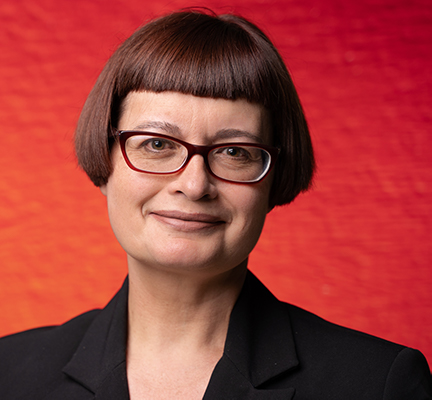
Mia Malan
EDITOR IN CHIEF, BHEKISISA CENTRE FOR HEALTH JOURNALISM
Mia Malan is the founding editor-in-chief of the Bhekisisa Centre for Health Journalism, a pioneering, donor-funded media start-up in South Africa. Bhekisisa has pioneered solutions journalism in the country and its reporting has influenced social justice policies. Malan has 25 years of journalism, fundraising and institution-building experience in legacy media and digital native publications, working in newsrooms and at media development organisations in Johannesburg, Nairobi and Washington, DC.
She’s grown Bhekisisa from a specialist desk at a legacy outlet to an independent non-profit over the past seven years. A respected long-form writer and broadcaster, Malan has worked with journalists, media trainers and news executives from South Africa, Kenya, Nigeria, Botswana, Uganda, Ethiopia, India, Thailand, Iran and the Czech Republic.
Malan is a former Knight International Journalism fellow of the International Centre for Journalists and a Reuters Institute for the Study of Journalism fellow at Oxford University. Malan has won 26 local and international awards for her radio, print and television work
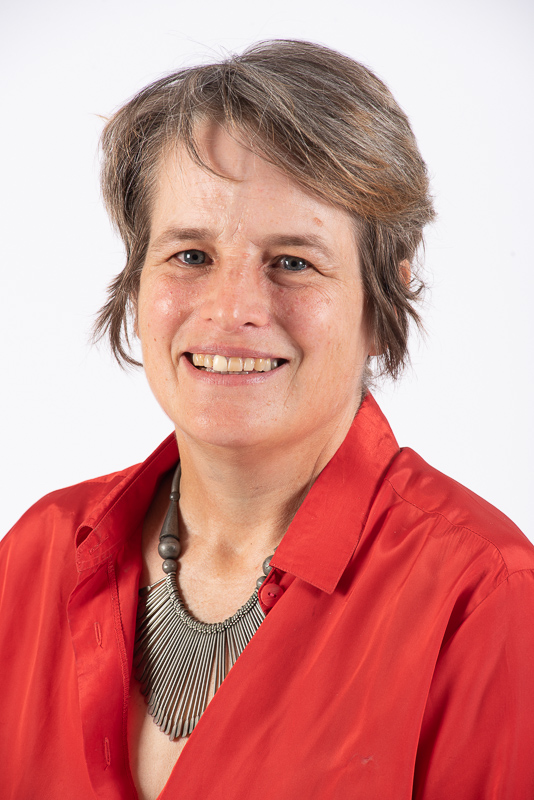
Alette Schoon (Host)
SENIOR LECTURER, SCHOOL OF JOURNALISM AND MEDIA STUDIES, RHODES UNIVERSITY
Dr Alette Schoon currently runs a MA programme in Science Communication in collaboration with Professor Janice Limson at Rhodes University. She holds a PhD in Journalism and Media Studies from UCT and a BSc in Mathematics and Applied Mathematics from the University of Pretoria. She also completed a diploma in Film and Video Technology from Pretoria Technikon (now Tshwane University of Technology) and an MA from Rhodes.
Alette is a senior lecturer in the School of Journalism and Media Studies at Rhodes University where she teaches documentary filmmaking and various postgraduate courses in digital theory and journalism.
Before entering academia, Alette worked for more than a decade as a documentary filmmaker and educational television producer. Her work was regularly broadcast on national broadcasters SABC and eTV and several of her documentaries travelled to international film festivals. Her documentary film Makhotso:Wild on Wheels won the audience award at the first Perspectiva International Disability Film Festival in Moscow. Alette also has experience working as a computer programmer and a media trainer in the NGO sector.
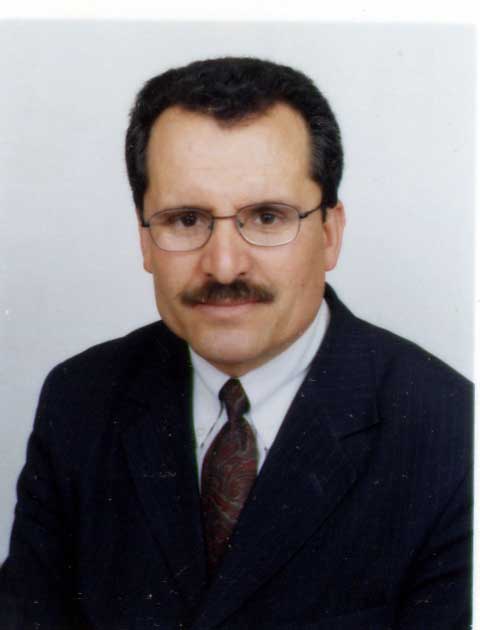
Laeed Zaghlami
PROFESSOR, ALGIERS UNIVERSITY
Laeed Zaghlami holds a PhD from Algiers University, an MPhil from the University of Surrey, UK and a diploma from the International Academy of Broadcasting in Montreux, Switzerland. He is a professor in the Faculty of Information and Communication at Algiers University and an associate professor in Faculty of Politics and International Relations.
Zaghlami is a former manager of Algerian Broadcasting and a former correspondent for the Daily Nation in Kenya, www.africareview.com, and www.universityworldnews.com. He is also a freelancer and an analyst for Algerian Broadcasting and an editorial board member of the series Anthem Studies in Soft Power and Diplomacy. He has written numerous articles, book chapters and books.
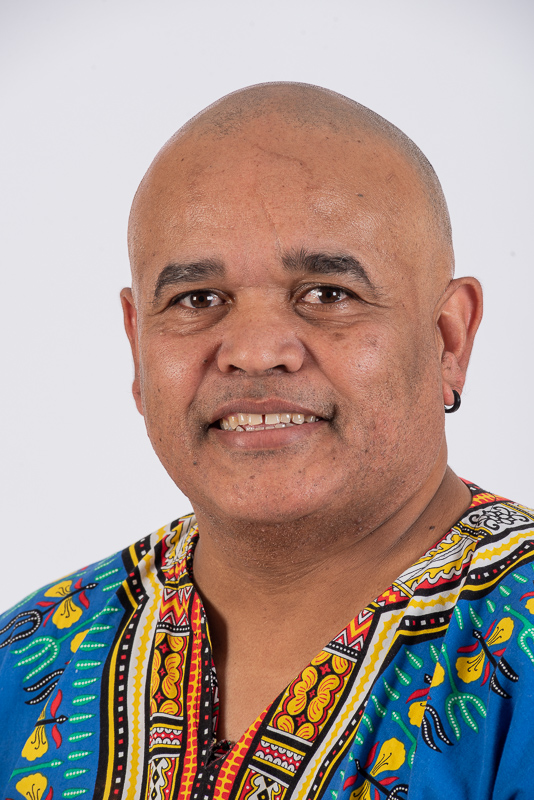
Julian Jacobs (Host)
PHD CANDIDATE, SCHOOL OF JOURNALISM AND MEDIA STUDIES, RHODES UNIVERSITY
Julian Jacobs is a PhD candidate within the School of Journalism and Media Studies at Rhodes University. He is a former journalist who has worked in the area of science/health communications for more than 15 years. He is a former director of communications and stakeholder relations for the Human Sciences Research Council, communications manager for the SA Medical Research Council and former media and advertising manager for the Department of Labour.
Webinar recording
Webinar report
Makhanda (Grahamstown), South Africa — Highway Africa (HA), the largest conference for African journalists on the continent, hosted its second webinar entitled “Journalists, Scientists, Whistle-blowers, Governments: Who are The Truth-Tellers” on August 5.
This session was part of a series of Highway Africa webinars, hosted by the School of Journalism and Media Studies at Rhodes University, that seeks practical solutions to challenges faced by African media and journalism in the era of Covid-19.
In this second webinar, four media experts from across the African continent discussed how to navigate the rocky terrain of deciding who to trust amongst journalists, scientists, governments and whistle-blowers in the time of the Covid-19 pandemic.
Teldah Mawarire, a project director at Internews shared worrying findings from a recent Internews research project that examines freedom of expression for journalists across Southern Africa in the Covid-19 era. She noted that “some of the laws which are meant to respond to Covid-19 are infringing and curtailing on freedom of expression”. The research shows that laws prohibiting disinformation and carrying large financial penalties are leading to self-censorship among journalists across the region. It also reveals that some countries in the region have pronounced government sources to be the only legitimate sources for Covid-19 reporting. This has crippled investigative journalism and has made it nearly impossible to report independently on infection numbers and Covid-19’s impact on communities and hospitals in Southern Africa.
Mawarire also highlighted the acute lack of personal protective equipment (PPE) for Southern African journalists and the severe financial pressures affecting print media sustainability in the region. The Internews report focused on seven Southern African countries which include: Zimbabwe, Zambia, Eswatini, Lesotho, South Africa, Botswana and Malawi. It will be released on the Internews website (https://internews.org/) in the next few weeks.
Mawarire shared the platform with Mia Malan, the founding editor-in-chief of Bhekisisa Centre for Health Journalism, a pioneering, donor-funded health media start-up in South Africa; as well as Dr Laeed Zaghlami, a professor in the faculty of Information and Communication at Algiers University in Algeria.
Malan reflected on the difference in reporting between two different pandemics, that of HIV/Aids, and the current Covid-19 pandemic. She noted that in the case of HIV/Aids there were better opportunities to report on studies as the epidemic was slower-paced than Covid-19.
Malan explained that the pandemic has revealed the importance for all journalists, not just science journalists, to understand the process of scientific research and publication. Such knowledge can help journalists realise how to make sense of untested information that is regularly circulated online in the form of prepublication drafts. These drafts facilitate the rapid circulation of scientific ideas when urgent solutions are needed to save lives, but also need to be treated with some scepticism. An overview of prepublication drafts reveal numerous discrepancies in Covid-19 studies and such research often has to be retracted later or adjusted after peer review. Journalists need to understand the difference between pre-publication drafts and peer-reviewed articles and should only rely on peer-reviewed publications in their reporting.
“There are a few rules to be followed. If it sounds too good to be true, then it probably is. When you get fast-tracked research, you need to raise your eyebrows. When you see a scientist speaking outside of their field of expertise, then question their credibility and ask questions”, Malan warned.
Zaghlami echoed Malan’s sentiments on the importance of checking the credibility of both information and sources. He noted that in Algeria there has been a massive increase in social media usage over the past year, particularly of Facebook and YouTube. This has resulted in the rise of conspiracy theories, as well as controversial and fake news, especially around Covid-19.
The webinar was moderated by Dr Alette Schoon, a senior lecturer at the School of Journalism and Media Studies at Rhodes University, and Julian Jacobs, a PhD candidate at the school, who has worked in the area of science/health communications for more than 15 years.
Malan called for partnerships between the media, civil society organisations, scientists, governments and epidemiologists to collaborate around media solutions for addressing the Covid-19 pandemic. She remarked that small media start-ups focusing on health were ironically better suited to survive the current economic challenges than many large media organisations, particularly print publications.
Highway Africa, established more than two decades ago, has developed a reputation as the conference that engages with the most important issues facing media practitioners in Africa. While there will be no face-to-face conference in 2020 because of Covid-19, planning is underway for a Highway Africa summit conference for June 2021.
